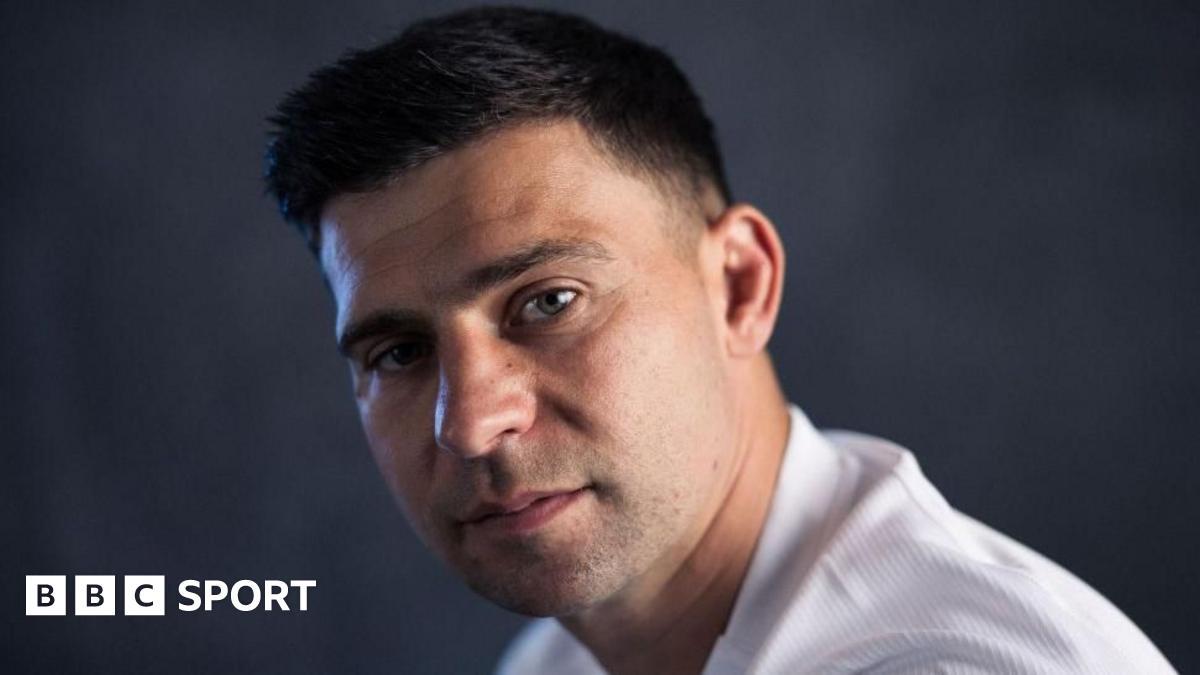
Former NRL star Kevin Proctor suffered a brutal knockout at a controversial ‘run it straight’ event in Dubai, an incident that has sparked widespread concern and criticism. The event, which took place overnight, saw Proctor colliding with social media influencer Jordan Simi in a high-speed, rugby-style collision that left the 36-year-old former Kiwi international on the ground, visibly distressed.
Footage of the incident quickly circulated on social media, showing Proctor’s arms and legs stiffen as medics rushed to his aid. Spectators and organizers expressed immediate concern, with reactions ranging from shock to outrage. One user on X exclaimed, ‘What did I just watch!’, while another condemned the event as ‘Absolutely f**king disgusting.’ A third user expressed hope for Proctor’s recovery, stating, ‘Hope Proctor is okay after that knockout.’
The Rise of ‘Run It Straight’ Events
The ‘run it straight’ trend has gained traction on social media, with official competitions emerging in cities like Sydney and across New Zealand. These events involve participants charging directly at each other, mimicking the physical collisions seen in rugby. While the trend has attracted a following, it has also drawn significant criticism for its inherent dangers.
Last month, the risky nature of these events was tragically highlighted when New Zealand teenager Ryan Satterthwaite lost his life attempting the challenge. Despite the presence of medical staff, critics argue that the events pose unacceptable risks. Neuroscientist Dr. Helen Murray described the activity as a high-risk endeavor, stating, ‘There is clearly a high risk of head injury in this event. There’s no attempt to reduce head acceleration, so I do not support it.’
Expert Opinions and Safety Concerns
Experts in sports science and neurology have voiced their concerns over the safety of ‘run it straight’ events. Professor Patria Hume, a specialist in sports science and injury prevention, criticized the trend as ‘a step backwards.’ She emphasized the potential for long-term brain damage, stating, ‘The science is clear – repeated head impacts increase risk of long-term brain damage.’
Echoing these sentiments, Australian neurologist Dr. Alan Pearce labeled the events as ‘insanity.’ He argued that the trend removes the skill and strategy inherent in traditional sports, replacing it with sheer force.
Kevin Proctor’s Controversial Past
Kevin Proctor’s involvement in the Dubai event is the latest in a series of controversies surrounding the former NRL player. Proctor, who played 283 games for the Titans and Storm, was sacked in 2022 following the infamous ‘vape-gate’ incident. He was caught vaping in the CommBank Stadium toilets during a game, an act that violated stadium policies and resulted in a $15,000 fine and his subsequent dismissal from the Titans.
Proctor’s career has been marred by other indiscretions, including a $20,000 fine and a four-game ban in 2017 for allegedly purchasing and consuming cocaine. In 2020, he was suspended for four matches after being found guilty of biting Shaun Johnson during his 250th NRL appearance, a charge he denied but was unable to overturn.
Future of ‘Run It Straight’ Events
Despite the controversies and safety concerns, ‘run it straight’ events continue to pop up in Australia and New Zealand, often offering cash prizes to participants. However, recent weeks have seen several events postponed or canceled, reflecting growing apprehension about the trend’s safety.
The incident involving Kevin Proctor serves as a stark reminder of the potential dangers associated with these events. As discussions around safety and regulation continue, the future of ‘run it straight’ competitions remains uncertain. Experts and critics alike are calling for stricter oversight and a reevaluation of the risks involved, hoping to prevent further tragedies.






